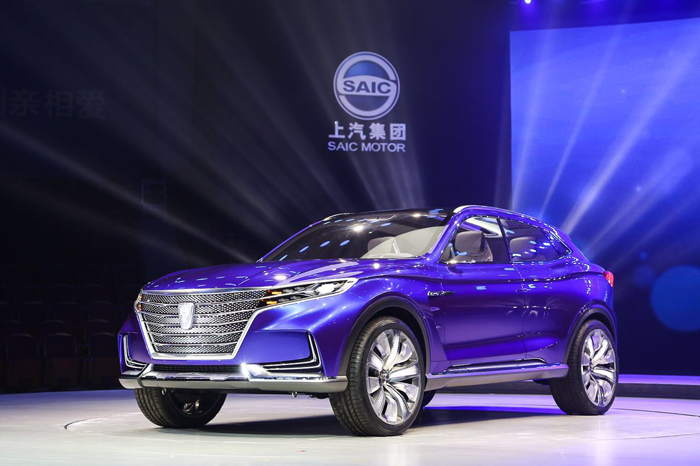Roewe Vision-E: a car of future

The technologies of new energy, artificial intelligence, big data and cloud computing have transformed the traditional auto industry. The traditional engine, gearbox and chassis are now progressing to become electric, internet-connected, intelligent and sharing, turning cars into a smarter and greener “new species”.
SAIC Motor, China's largest automaker, has strived to lead the way for a new era in the auto industry, under its new four trends - electrification, connection, intelligence and sharing.
At the first Auto Frontrunner Summit organized by SAIC Motor on April 18, SAIC delivered a milestone product - Roewe Vision-E, an internet-connected electric car.
The summit served as a move for SAIC Motor to initiate “idea crowd-funding”, a new way for the company to facilitate the exchange of ideas in the auto industry, as well as one of SAIC’s efforts to develop new auto products and business models.
The letter “E” stands for electric, eco and era, which represents Vision-E as a next-generation new-energy internet-connected car and demonstrates SAIC’s vision for the new era of electric cars.
The all new Roewe Vision-E will become a car of future by integrating new energy and smart-connected technologies. It incorporates functions such as an intelligent-connected systems developed by SAIC Motor and e-commerce giant Alibaba, AR-HUD, auto parking and wireless charging. It can reach speeds of 100 kph within four seconds, with a mileage of 500 km, bringing amazing driving experience. The concept car is slated to go into mass production in 2018.
In addition, the concept car sports a sporty and elegant exterior design and outstanding driving performance, achieving a fusion of sedan comfort and SUV utility at a high level. An ultra-low drag coefficient of just 0.27, much lower than SUVs on the market, helps improve its power.
The interior design is also full of technological features, with a 14-inch curved screen, virtual dashboard, auto-folding steering wheel, and zero gravity seats.
The automobile industry is transforming from stereotyped mass production into a "customer to business" (C2B) model, where users' participation becomes an essential part of car making and individual demands are taken into full account.
Thus at the summit, SAIC also announced the recruitment of its first group of designing experiencers for Vision-E to establish an advisory team. Users are invited to participate in the car production.
The black technologies in the engine help SAIC lead the future auto development while the idea crowd-funding is the basis for SAIC to make new cars. With the auto frontrunner summit and idea crowd-funding, SAIC aims to build a platform to show advanced auto technologies, boost cooperation and enhance innovation sharing.

